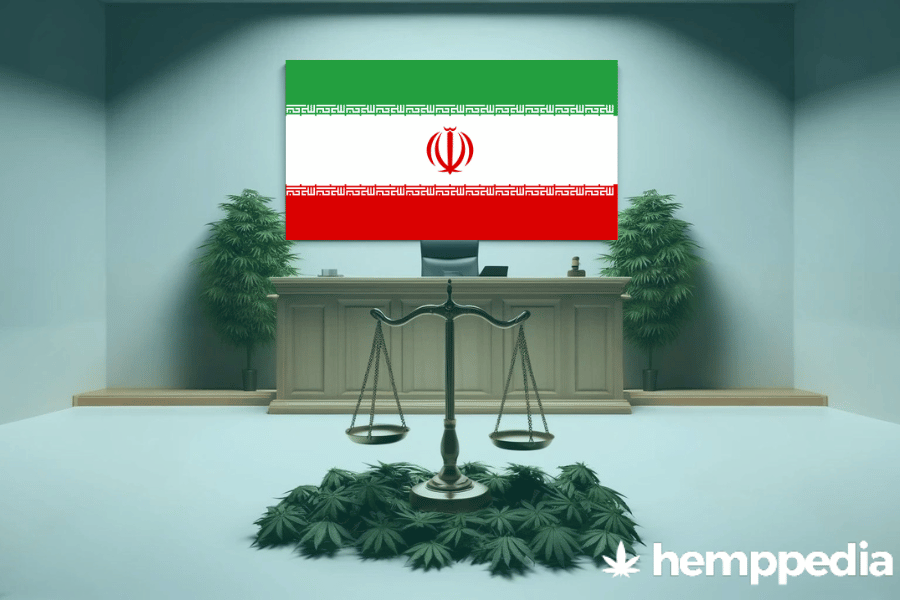TL;DR Is CBD Legal in Iran?
In Iran, the legal status of cannabidiol (CBD), a non-psychoactive compound derived from the cannabis plant, is complicated. While the use of cannabis is generally illegal, the law doesn’t explicitly address CBD derived from industrial hemp with less than 0.3% THC content.
- Legal status: Undefined
- Usage: Not explicitly regulated
- Possession limits: Not clearly defined
CBD, or cannabidiol, is a compound extracted from cannabis. Unlike THC, which is responsible for the psychoactive effects of cannabis, CBD is non-psychoactive and is known for its potential therapeutic effects. Its legal status often differs from THC-dominant products due to this fundamental difference.
Globally, CBD regulation ranges from legal to strictly prohibited, marked by areas of ambiguity and variation in enforcement, a trend that is evident in Iran as well.
Overview of CBD Legislation in Iran
Key Terms
CBD refers to cannabidiol, a compound found in cannabis responsible for numerous potential health benefits. Hemp refers to cannabis varieties used for industrial purposes with low THC content, while marijuana often refers to varieties with high THC content. Full-spectrum CBD products contain other natural compounds found in the cannabis plant, while CBD isolate is pure CBD.
Legal Landscape
Though cannabis use is generally illegal in Iran, the law does not appear to explicitly regulate CBD. This ambiguity leaves it undefined whether CBD extracted from industrial hemp with less than 0.3% THC falls under these general prohibitions.
Regulatory Bodies
The Ministry of Health and Medical Education and the Drug Control Headquarters are the main regulatory bodies overseeing substance regulations in Iran.
Conditions and Restrictions
In terms of CBD, there seem to be no clearly defined laws regarding THC content limits, allowed product types, or certification requirements.
Historical Context
Historically, cannabis use for recreational purposes in Iran has been criminalized. However, the legal status of CBD, particularly those derived from industrial hemp, is still ambiguous.
Possession, Use, Cultivation and Sales
The lack of specific regulations around CBD implies undefined legality regarding possession, use, and sales. However, cultivating cannabis plants without government authorization is generally illegal.
Enforcement and Penalties
Wealthy violations of Iran’s drug laws, including the cultivation and use of cannabis, could lead to serious penalties, including imprisonment.
However, it is unclear how these penalties might apply to CBD, given its lack of specific regulation.
Comparative Analysis
Compared to many Western countries where CBD regulation has been advanced to cater to its increasing use, Iran’s lack of specific CBD laws represents a diverging approach.
Conclusion
To sum up, while the legal status of cannabis in Iran is clear, the same isn’t true for CBD, leaving room for interpretation and creating a gray area. It will be interesting to see if this ambiguity will be addressed in future legislation as the global trend toward CBD regulation continues.





